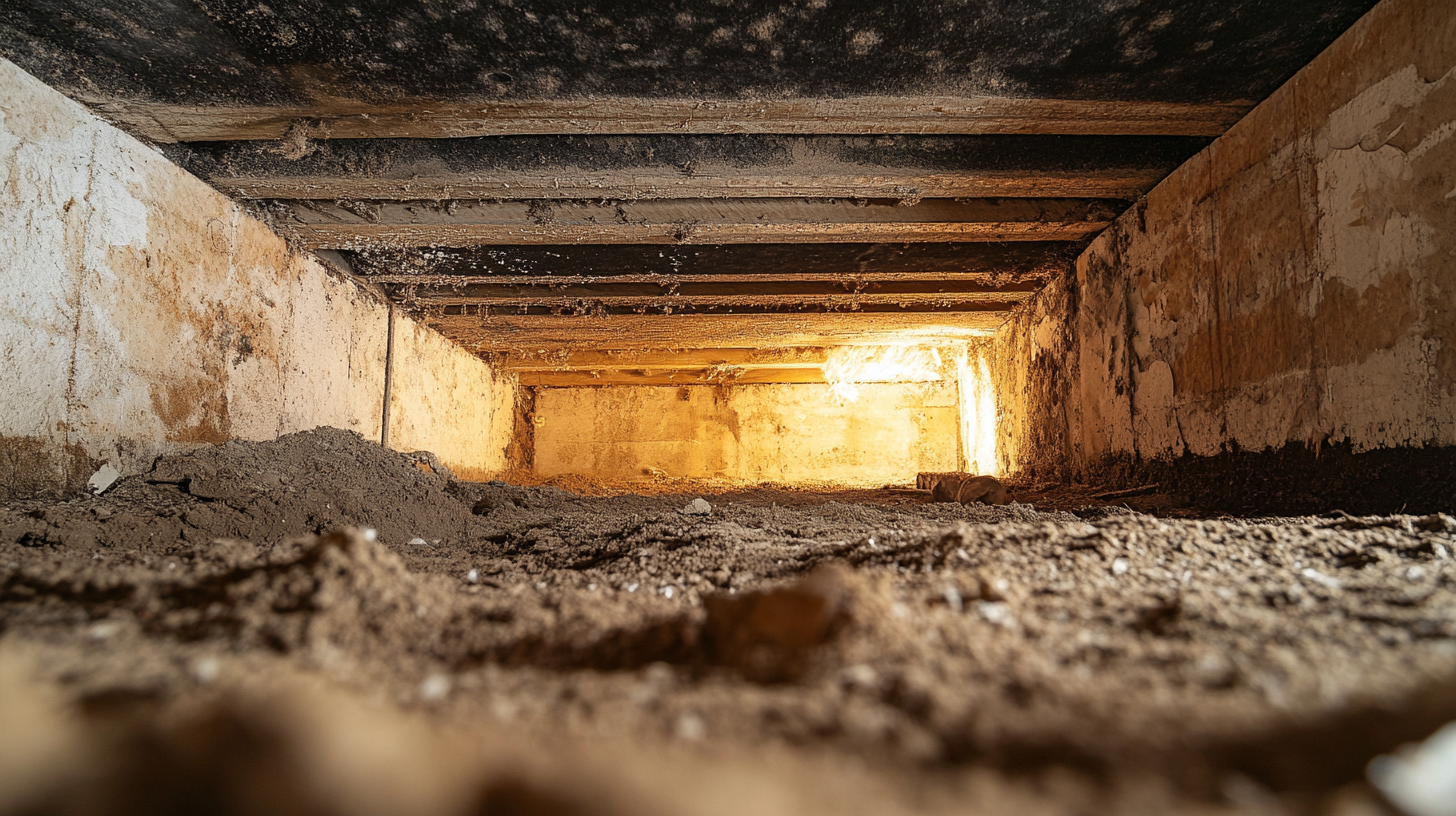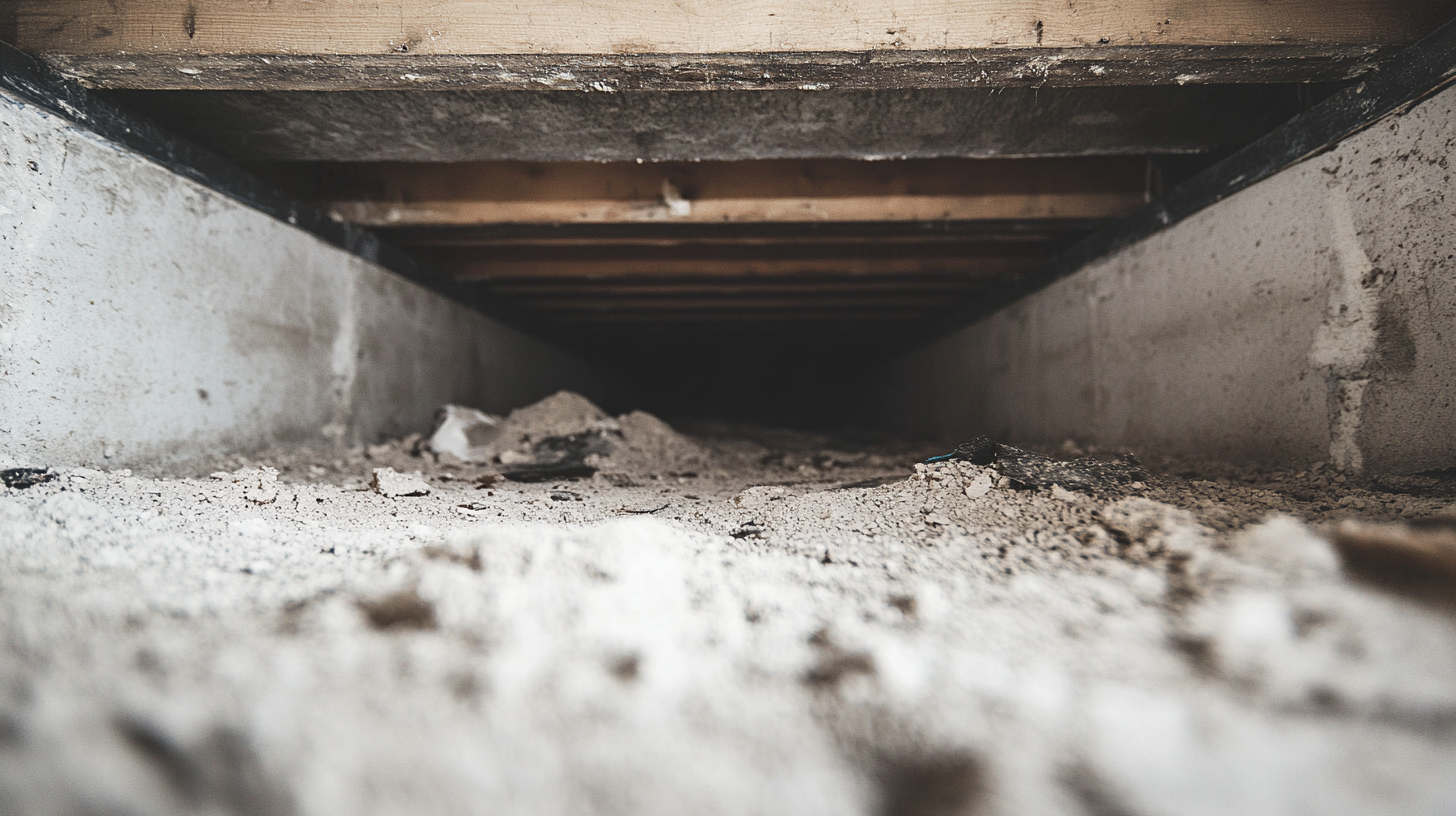The Role of Enzyme Cleaners in Odor Neutralization

Managing household odors can be a constant challenge, as everyday activities like cooking, pet care, and bathroom use leave behind lingering smells that can be tough to eliminate. While traditional cleaners often mask these odors temporarily with fragrances, they rarely address the root cause. As a result, odors can resurface, leaving your home smelling less than fresh. Traditional cleaning products frequently rely on chemicals that only neutralize odors at the surface, offering short-term solutions that don't fully eliminate the problem. For long-lasting odor control, it's essential to use methods that target and break down the organic materials causing the smells, ensuring a truly clean and odor-free environment.
What Are Enzyme Cleaners?
Enzyme cleaners offer a powerful, eco-friendly approach to tackling stubborn odors and stains by using naturally occurring proteins to break down organic materials. These cleaners are not only effective but also safer and more sustainable compared to traditional chemical-based products. Understanding how enzyme cleaners work and how they differ from regular cleaners highlights their value in maintaining a fresh, clean home.
The Science Behind Enzyme Cleaners
Enzymes are naturally occurring proteins that act as biological catalysts, speeding up chemical reactions. In cleaning, specific enzymes target and break down organic materials, such as proteins, fats, and starches, which are often the root cause of odors and stains. When enzyme cleaners are applied to a surface, they break these substances down into smaller molecules like water and gases, which can evaporate or be easily wiped away, leaving the area clean and odor-free.
The effectiveness of enzyme cleaners lies in their ability to digest odor-causing substances. For example:
- Protease enzymes break down proteins found in food spills, pet urine, and bodily fluids.
- Lipase enzymes target fats and oils, common in kitchen grease and food stains.
- Amylase enzymes break down starches found in food spills and organic waste.
This targeted approach allows enzyme cleaners to neutralize odors at the source, providing a deeper, longer-lasting clean.
How Enzyme Cleaners Differ from Regular Cleaners
Traditional cleaners often rely on chemicals to temporarily mask odors, using fragrances or harsh agents to neutralize smells without addressing the underlying cause. While these products can offer quick fixes, they usually don’t provide lasting results, as the organic matter causing the odor remains.
Enzyme cleaners, on the other hand, work by breaking down the organic compounds that cause odors and stains. Instead of masking smells, enzyme cleaners digest and remove the materials that produce them, ensuring a more thorough and effective clean.
In addition to their superior odor-neutralizing abilities, enzyme cleaners are also:
- Non-toxic: They don’t contain harmful chemicals, making them safe to use around pets, children, and sensitive individuals.
- Eco-friendly: Enzyme cleaners are biodegradable and break down naturally, reducing environmental impact compared to traditional cleaners that may contain pollutants.
By targeting and eliminating the root cause of odors and stains, enzyme cleaners offer a sustainable, safe, and highly effective alternative to traditional cleaning products, making them ideal for households that prioritize both cleanliness and health.
How Enzyme Cleaners Work to Neutralize Odors
Enzyme cleaners are designed to go beyond merely masking odors; they actively break down the organic materials that are the root cause of bad smells. By targeting and digesting odor-causing compounds, enzyme cleaners offer a more thorough and long-lasting solution for neutralizing odors in homes and commercial spaces.
Breaking Down Organic Matter
The key to enzyme cleaners' effectiveness lies in their ability to break down organic waste materials such as urine, feces, food, and sweat. These organic substances are often the primary cause of unpleasant odors in areas like bathrooms, kitchens, and pet zones. Traditional cleaners may temporarily hide these smells with fragrances, but enzyme cleaners target the problem at its source by chemically breaking down the waste.
Once the enzyme cleaner is applied, the enzymes begin to digest the organic matter, transforming it into harmless byproducts such as water and gas, which evaporate naturally. This process not only eliminates the odor but also prevents it from returning, providing a deeper and more effective clean. Because enzyme cleaners neutralize odors at the molecular level, they can tackle even the most stubborn smells, leaving the space truly fresh.
The Role of Specific Enzymes in Odor Elimination
Enzyme cleaners often contain a combination of specific enzymes that are tailored to break down different types of organic materials. Each enzyme has a unique function in eliminating the compounds that cause odors.
- Protease: This enzyme breaks down proteins, which are common in pet urine, feces, and food waste. Proteins are a major contributor to foul odors, especially in pet-related accidents, and protease enzymes effectively digest these materials to remove the smell at its source.
- Lipase: Lipase targets fats and oils, which are frequently found in kitchen grease, cooking spills, and certain food residues. These fatty substances can create stubborn, lingering odors, particularly in kitchen environments. Lipase enzymes dissolve and digest these fats, ensuring that greasy smells are fully neutralized.
- Amylase: Amylase enzymes break down starches, another common contributor to food-related odors. Starches from foods like bread, pasta, and other carbohydrates can accumulate on surfaces or in drains, leading to unpleasant smells. Amylase helps eliminate these starch-based residues, leaving the area odor-free.
By breaking down specific components of organic waste, enzyme cleaners are able to effectively target and neutralize a wide range of odors, making them a highly efficient and versatile cleaning solution.
The Benefits of Using Enzyme Cleaners for Odor Control
Enzyme cleaners are an effective, eco-friendly solution for tackling tough odors at their source. Unlike traditional cleaners that merely mask unpleasant smells, enzyme cleaners break down the organic compounds causing the odor, providing a more thorough and long-lasting clean. Here are some of the key benefits of using enzyme cleaners for odor control.
Long-Lasting Odor Elimination
One of the major advantages of enzyme cleaners is their ability to eliminate the source of odors, ensuring long-lasting results. Traditional cleaning products often rely on chemicals to mask odors temporarily, but these smells can quickly return once the fragrance fades. Enzyme cleaners, however, digest and break down the organic materials responsible for bad odors, ensuring that they are fully neutralized.
Enzyme cleaners work on both surface-level and deep-seated odors, penetrating porous materials like carpets, upholstery, and grout to remove odors at the source. This deep-cleaning action ensures a thorough clean that keeps spaces smelling fresh for longer.
Safe and Eco-Friendly Solution
Enzyme cleaners are a safe and eco-friendly alternative to harsh chemical cleaners. They are biodegradable and free from toxic ingredients, making them ideal for homes with pets, children, or individuals with sensitivities. Since enzyme cleaners are composed of naturally occurring proteins, they work without the need for harmful chemicals, ensuring a safer indoor environment.
Additionally, enzyme cleaners are environmentally friendly because they break down naturally, leaving no harmful residues behind. This makes them a sustainable cleaning option, reducing your household’s impact on the environment while maintaining effective odor control.
Versatility in Different Applications
One of the key benefits of enzyme cleaners is their versatility. These cleaners can be used on a wide range of surfaces, including carpets, upholstery, hard floors, and drains. Their ability to target organic matter makes them suitable for tackling odors in various parts of the home, such as:
- Kitchens: Eliminate food and grease odors from countertops, stovetops, and garbage disposals.
- Bathrooms: Remove body oils, soap scum, and mildew odors from tiles, sinks, and drains.
- Pet areas: Neutralize pet urine, dander, and body oils from carpets, pet beds, and fabrics.
- Laundry: Effectively remove stubborn stains and odors from clothing and linens.
This versatility makes enzyme cleaners a comprehensive solution for odor removal throughout the home, providing a cleaner, fresher environment across multiple spaces and surfaces.
Common Odors That Enzyme Cleaners Can Eliminate
Enzyme cleaners are highly effective in tackling a wide range of common household odors. By breaking down the organic compounds responsible for bad smells, they offer a deep, thorough clean that removes odors at their source. Here are some of the most common types of odors enzyme cleaners can eliminate.
Pet Odors
Urine and Feces
One of the biggest challenges for pet owners is dealing with the persistent odors from pet urine and feces. Enzyme cleaners are specially designed to break down the proteins and uric acid crystals found in pet waste, neutralizing the smell completely. Traditional cleaners often leave behind traces that pets can detect, leading to repeated accidents, but enzyme cleaners fully eliminate the odor.
Dander and Vomit
Pet dander and vomit can leave behind lingering odors that are hard to remove with regular cleaners. Enzyme cleaners work by breaking down the organic components in dander and vomit, leaving surfaces and fabrics clean and odor-free. This makes enzyme cleaners ideal for use on carpets, upholstery, and pet bedding.
Food and Organic Waste
Spills and Rotten Food
Kitchens are prone to a variety of odors caused by food spills, rotten food, and grease. Enzyme cleaners effectively break down the proteins, fats, and carbohydrates in food waste, eliminating the source of the smell rather than masking it. This is particularly useful for keeping countertops, cutting boards, and appliances free of lingering food odors.
Ideal for Refrigerators, Garbage Disposals, and Trash Cans
Enzyme cleaners are also perfect for areas where food waste odors tend to accumulate, such as refrigerators, garbage disposals, and trash cans. By breaking down organic matter, enzyme cleaners ensure these areas remain fresh and free from the unpleasant smells of decomposing food.
Body Odors and Sweat
Clothes, Towels, and Upholstery
Body sweat and oils can leave behind strong odors on clothing, towels, and furniture. Enzyme cleaners neutralize these odors by breaking down the organic residues that cause them, providing a deep clean that leaves fabrics fresh and odor-free. They are particularly effective for use in laundry or on items that come into contact with skin frequently.
Gym Equipment Areas
Enzyme cleaners are also ideal for gym equipment areas, where odors from sweat and body oils can build up over time. By breaking down the organic material responsible for the smell, enzyme cleaners help maintain a clean and odor-free environment in gyms, fitness centers, and home workout spaces.
Bathroom Odors
Human Waste and Mold
Bathrooms are a common source of odors caused by human waste and mold growth. Enzyme cleaners break down the organic matter in toilets, drains, and sinks, eliminating the odors at their source. This is especially helpful in managing smells from toilets and preventing the buildup of mold and mildew, which thrive in damp environments.
Enzyme cleaners offer an effective, safe, and versatile solution for eliminating common household odors, making them a valuable addition to any cleaning routine. Whether you're dealing with pet odors, food waste, body sweat, or bathroom smells, enzyme cleaners provide a deep and long-lasting clean.
Best Practices for Using Enzyme Cleaners
To get the most effective results from enzyme cleaners, it’s important to follow specific steps that allow the enzymes to fully break down the organic materials causing odors. By using enzyme cleaners correctly, you can ensure a deep clean and long-lasting odor control. Here are the best practices for using enzyme cleaners.
Step 1 – Apply Directly to the Affected Area
The first step in using enzyme cleaners is to identify the source of the odor and apply the product directly to the affected area. It’s crucial to apply the enzyme cleaner generously, ensuring that it fully covers the entire surface where the odor originates.
- For porous surfaces such as carpets, upholstery, or fabrics, make sure the enzyme cleaner penetrates deep into the material. Odors from spills, pet accidents, or sweat often settle below the surface, so the cleaner needs to reach the embedded organic matter to neutralize it completely.
Step 2 – Allow Time for Enzymes to Work
Enzyme cleaners need time to break down the organic material that is causing the odor. Once the product is applied, it’s important to let it sit and do its job.
- Allow the cleaner to remain on the surface for at least 10-15 minutes, or longer for tougher odors such as pet urine or food spills. The enzymes will gradually break down proteins, fats, and other compounds responsible for the smell.
- Avoid rinsing or wiping the area immediately after application. Patience is key to allow the enzymes to complete the breakdown process, ensuring that the source of the odor is fully eliminated.
Step 3 – Rinse or Blot the Area
Once the enzymes have had sufficient time to work, it’s time to remove the residue. Depending on the surface, either blot the area or rinse it.
- For porous surfaces like carpets and fabrics, use a clean cloth to blot up the remaining moisture and cleaner. Be sure to press gently to avoid spreading the residue.
- For hard surfaces such as floors, countertops, or tiles, rinse the area with water to remove any excess cleaner.
For persistent odors or severe stains, you may need to repeat the process. Enzyme cleaners can require multiple applications in extreme cases, as the organic material may be deeply embedded or widespread.
By following these steps, you can maximize the effectiveness of enzyme cleaners, ensuring thorough odor removal and a fresher, cleaner environment.
FAQs
Contact Fast Response Cleaning & Restoration Today!
Fast Response Cleaning & Restoration will do everything we can to ensure your experience with us is excellent.
Request A FREE Estimate
Request A FREE Estimate Form
CHECKOUT RECENT POST



Have an Emergency? We're Here to Help!
When it comes to disaster cleanup, we are a seasoned veteran in the industry and have helped hundreds of property owners just like you.
Our disaster recovery teams are available 24-7 to quickly clean up and repair disasters of all types.
